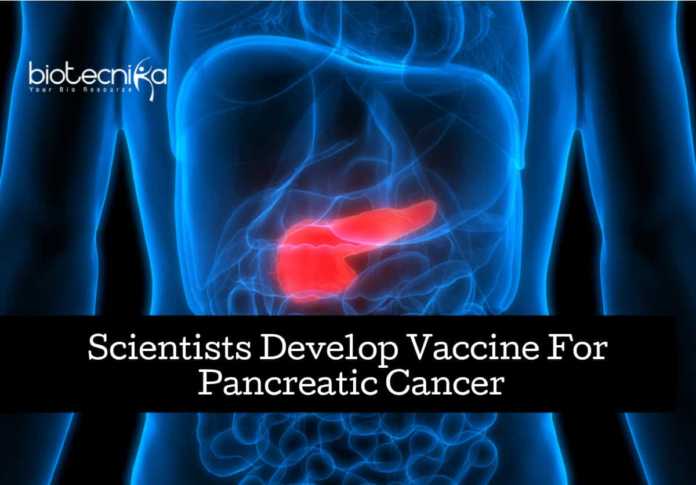Vaccine For Pancreatic Cancer
Scientists from Zhengzhou University and the Queen Mary University of London have developed a personalized vaccine system that could help delay the onset of pancreatic cancer as well as prevent it.
The study provides a strong proof-of-concept for the creation of a vaccine for cancer prevention in individuals at high risk of developing this pancreatic cancer. The Vaccine For Pancreatic Cancer will also help in delaying the tumor development for the patient’s already affected by pancreatic cancer.
Although vaccines do exist for some cancers caused by viruses such as the human papillomavirus in cervical cancer, vaccination against non-viral tumors has remained a challenge.
Zhengzhou University and the Queen Mary University of London scientists created a vaccine system that almost doubled the survival time of mice having pancreatic cancer. Moreover, the vaccine system can be personalized for the individual and could potentially be tailored to work against other types of cancer.
Professor Yaohe Wang from the Queen Mary University of London said that the lack of appropriate tumor antigens hugely limits the Development of a preventive vaccine against non-viral cancers.
He added that through this international collaboration between Scientists from Zhengzhou University and the Queen Mary University
of London have made progress towards the development of a prophylactic cancer vaccine against pancreatic cancer.The Trials in Mice Models
To make the vaccine, the group of international scientists took cells from mice & induced pancreatic cancer in the cells by adding two errors into their genetic code. These mutations, are known as drivers of pancreatic cancer
The team of researchers then infected these cells with viruses, which have an essential role in the vaccine system. The viruses kill the cells to remove their ability to form tumors within the body, including activating the immune system against these cells.
The cells died following injection into the mice, after which the cells release antigens specific to these pancreatic cancer cells. This leads to an immune response.
By injecting these virus-infected cells into mice that were destined to develop pancreatic cancer, the team of scientists was able to delay the onset of cancer that resulted in doubling their survival time when compared with subjects who did not receive the vaccine.
Potential For Personalized Vaccine
The genetic makeup of cancer varies from across individuals. This means treatments that are effective for one patient may not be effective against another’s.
Pancreatic cancer has the lowest survival rate of all the common cancers, with approximately 5 percent of those diagnosed surviving for more than five years.
One reason for this low survival rate of pancreatic cancer is a lack of symptoms; or the delay in diagnosis. This suggests a window of opportunity for the application of preventative vaccine strategies.
Although the research is in its early stage, it has the potential to become a personalized as well as the preventive vaccine for pancreatic cancer.
The team will now look at different ways of improving the pancreatic cancer vaccine, including increasing the number of vaccinations and combining the vaccine with other therapies such as immunotherapies.






























